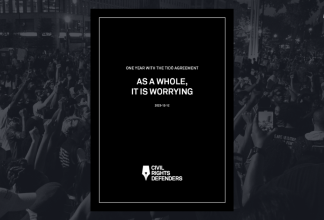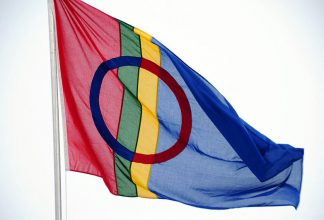Report on Ethnic/Racial Profiling in Sweden: Randomly Selected
Randomly Selected is part of a report series from the Department of Criminology at Stockholm University. It is developed by the criminologist Leandro Schclarek Mulinari on behalf of Civil Rights Defenders. The study is qualitative and based on interviews with police officers, as well as individuals who have been subjected to racial/ethnic profiling. The interview subjects are Afroswedes, Muslims and Roma, mainly from marginalised residential areas of major cities. The report’s overall aim is to deepen the understanding of a much-debated but under-examined phenomenon in Sweden.
Being singled out by the police due to race/ethnicity is a common experience for certain groups. When the study’s subjects recount experiences where race/ethnicity is a factor in controls, everyday situations are primarily described: driving, border crossings or interactions in public spaces. To be stopped frequently by the police produces a feeling of being treated as a potential perpetrator for no reason. The interview subjects further describe the suspicion they face, even when they are victims of crime.
The study highlights the similarities and differences in how police treatment is experienced by different ethnic minorities and racialised groups. Interviews with Roma demonstrate the historical continuity through which racial/ethnic profiling in Sweden must be understood. Experiences by Muslims demand an analysis of how this group is singled out by the Swedish Security Service (Säpo).
From a police perspective, the issue of racial/ethnic profiling is sensitive, and criticism against the police is often dismissed. The police officers interviewed in this report describe their own work as colour-blind. The dominant perspective is that an individual’s background and appearance is not considered. In contrast to the affected groups, the police do not experience race/ ethnicity as a factor that determines who is subjected to controls and surveillance.
When experiences of racial/ethnic profiling are explained through the logic of the police, three arguments appear. First, the police officers suggest that there are bad apples within the force, just as in society in general. Racial/ethnic profiling is reduced to individual events, to an anomaly. Second, certain work, such as immigration control, is understood as inherently racialised. The third argument is connected to location: certain residential areas are more crime-ridden than others. This explains why ethnic minorities and racialised groups are stopped more often by the police.
Please, click here to download the report.


